Menopause: the best skincare for menopausal skin
This article contains affiliate links. We may earn a small commission on items purchased through this article, but that does not affect our editorial judgement.
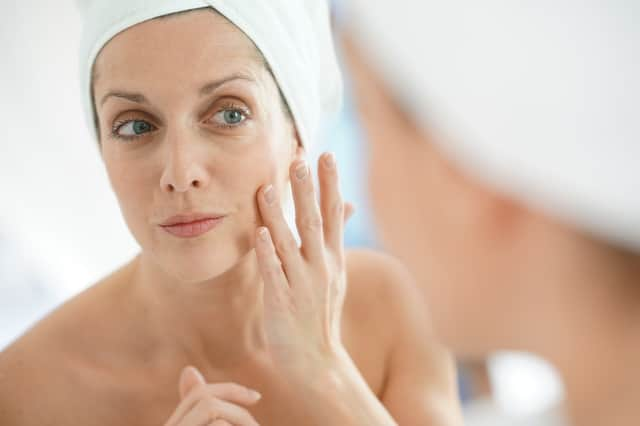

There is obviously a hefty psychological element to menopause. But in tandem to that, it’s effect on women physically can be overwhelming.
Of course, it’s worth consulting your doctor, learning about Hormone Replacement Therapy (HRT) and supplemental options if you’re having serious mood changes as a result. In addition to that, though, there are simple steps you can take to look and feel better in your changing body.
What happens to our skin during menopause?
Declines to the levels of sex hormones (progesterone and oestrogen) in our bodies prompts many changes: hot flushes, night sweats, dull skin, dry skin, flaking scalp and looser skin.
Ceramide, collagen and hyaluronic acid levels all drop as your oestrogen levels are depleted - your skin will be slower to heal. As your collagen fibres break down, the appearance of wrinkles and lines deepen. Less hyaluronic acid means your skin isn’t as hydrated, which is why it may be dry, rough, flaky, or itchy.
Combined, you may find your skin looks ‘dull’, sagging, flat - just not the plump, dewy visage you enjoyed in your youth.
It’s as stark a physical upheaval as entering into puberty is, and, just as we change our skincare routine at that time (well, we should - though many of us didn’t and suffered acne indignities as a result) we need to rethink our approach upon hitting ‘The Change.’
How should you change your skincare routine when menopausal?
You don’t need to leap to a 12-step routine or to hit the Crème de la Mer counter to fix your regime. Your primary aim should be to add in hydration and lipids to the ingredient you’re feeding your skin, and a decent retinol. These don’t have to be prohibitively costly. A £200 serum won’t necessarily fix your issues faster than a £50 one.
When should I use retinol?
Retinol as we all know is the gold standard for topically applied substance designed to combat signs of ageing. And while retinol is effective: it exfoliates the skin, increases skin cell turnover, and stimulates collagen synthesis - there are times when it pays to lay off.
Experiencing sensitivity, redness, sore breakout that won’t heal? Lay off the retinol until your skin calms down. Instead, cleanse, moisturise, and use SPF in the daytime. Hydrating mists are ok, too - they don’t do much but have a cooling effect that can be positively medicinal during a ho
If you are experiencing redness, sensitivity and the odd red, sore breakout that won’t heal, try limiting your skincare to cleansing, maybe misting (for light hydration and for the cooling effect), moisturising and SPF for daytime.
Sensitive, itchy skin? Avoid fragranced products - these can exacerbate the discomfort.
Lifestyle changes can help, too - keeping up water intake, sleeping more, eating plenty of antioxidants, avoiding too much alcohol, but let us be frank: the prospect of an abstemious existence post menopause doesn’t seem likely to help us cope. Instead, focus on doing what you can, when you can, lifestyle wise - and keep your skincare consistent.
Here are the products our testers found worked to help improve their menopausal or perimenopausal skin.
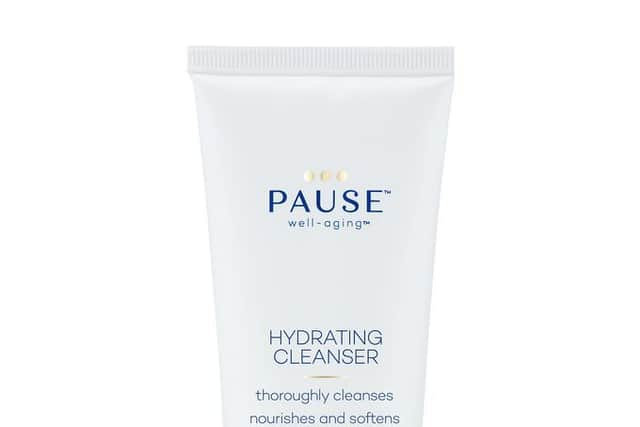

Seek out a gentle, hydrating, soap-free cleanser for menopausal or post-menopausal skin.
A great option (though not cheap) is the Hydrating Cleanser from Pause Well-Aging. It’s light and creamy, and manages to remove dirt and oil without leaving your skin stripped - important if you’re wrestling with dryness.
Containing vitamins, antioxidants and peptides, it also works to promote collagen production, for firmer, brighter skin.
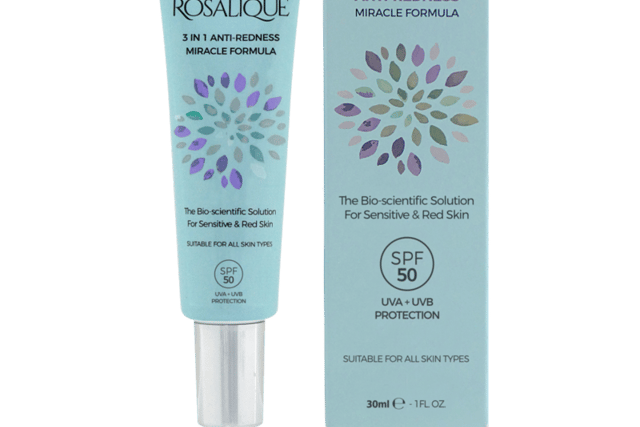

Menopause can cause sensitive skin to become even more so, and even prompt late-onset rosacea, which can be both painful and distressing.
Rosalique Skincare’s 3 in 1 Miracle Formula is aptly named - it’s gentle enough for sensitive skin, provides moisture, and protects to SPF50, which is important, as sun exposure makes inflamed skin even angrier.
It’s a colour corrector, so it comes out green, but don’t be alarmed, it mattifies to your skin colour as you spread it on, notably reducing redness. Be advised - a little goes a long way.
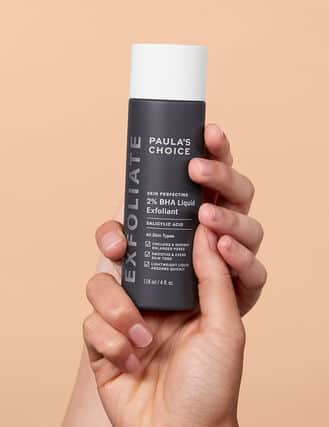

Acne breakouts are common among menopausal women, as hormones fluctuate. Using a liquid exfoliant with salicylic acid in it nightly can be the most effective way of exfoliating dull, dead skin cells and clearing pores, reducing your acne.
It’s also an anti-inflammatory, so it will redness redness and blackheads with consistent use. Just sweep on after cleansing but before serum/moisturiser. As with anything else on this list, use consistently to ensure best results.
From our forties onwards, cell turnover is reduced, so exfoliating face and body once a week improves cell replenishment - this will help restore glow to dull skin.
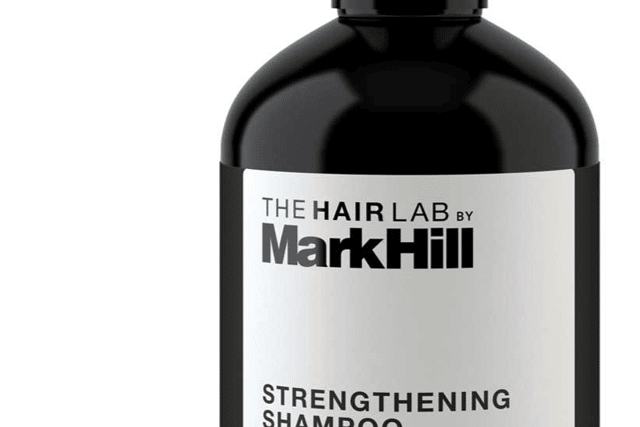

Menopause can trigger itchy scalp or leave hair brittle, dry or thinning. Using sulphate-free shampoos and conditioners helps soothe the scalp and boost locks to glossy glory.
Mark Hill’s Hair Lab range is ideal for strengthening hair prone to breakage through hormonal, heat, chemical damage or thinning hair. It contains no sulphates or silicone, is cruelty-free, vegan and comes in a 100% PCR bottle.
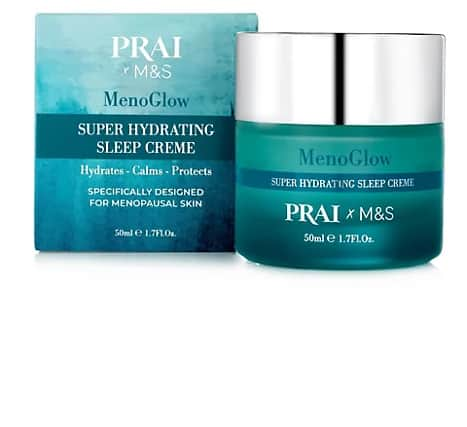

Testers adored the Tri-Active™ Regenerating Moisture Complex on parched, stressed menopausal skin - but at £70 it’s quite the investment.
Altogether more obtainable is Prai’s excellent night creme, MenoGlow Super Hydrating, which is light enough not to block pores but densely packed with hyaluronic acid to provide dry skin with moisture.
Our tester - who had dry, sensitive skin, noted that within a week of using MenoGlow she was waking up with plump; soft and hydrated skin. Also worth checking out: MenoGlow Hot Flush Cool Fix Serum, which does an outstanding job of cooling flushed skin within an instant.
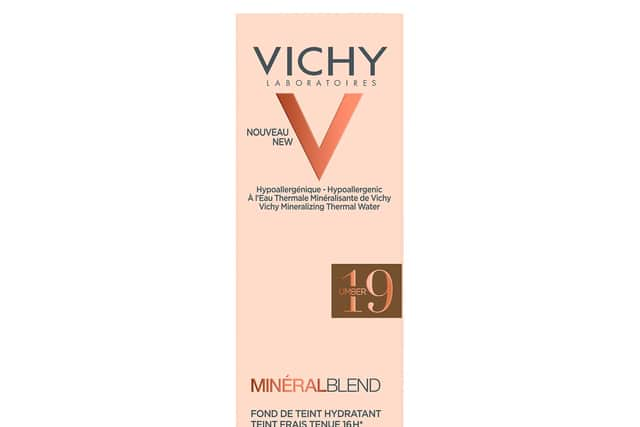

French pharmacy cosmetic brands offer some of the most impressive formulations on the market, at the most obtainable prices.
A mineral foundation can be great on sensitive, dry, irritated skin, and Vichy Mineralblend is infused with nourishing skin care ingredients, including Hyaluronic acid and glycerin. It spreads like butter without leaving a greasy film
The 70per cent water-based formula plumps skin, filling out the appearance of fine lines and wrinkles. Skin looks radiant and smooth.
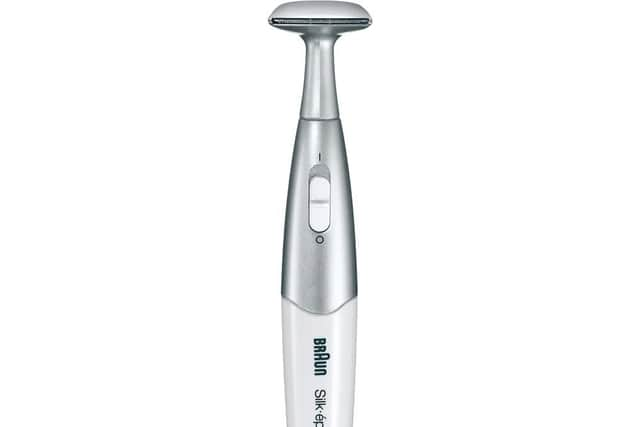

Facial hair is controlled by a hormone called dihydrotestosterone (DHT), which is modulated by oestrogen, which dominates your testosterone levels. As such, when your oestrogen levels drop during menopause, your DHT levels can go up, increasing the presence of DHT in your hair follicles. In short: your facial hair can start to grow faster and thicker, particularly around the upper lip and the chin.
Tweezing can suit for the odd chin hair, but if you’re growing a moustache and would like not to be, a facial trimmer can work wonders to be rid of it within seconds, without irritation to the underlying skin, or the smell or time required to use a depilatory cream.
The Braun Silk-epil is gentle on the skin, but will do away with unwanted whiskers - the work of moments after cleansing in the morning.
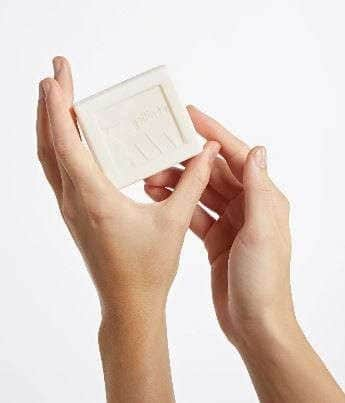

Let us not mince words here: menopause causes there to be less oestrogen in your body, and subsequently leads to the tissues of the vulva and vagina growing thinner and drier.
Regular cleansers do not assist the issue by being quite alkaline in nature, causing itchiness and often infection.
The Gallinée Perfume-Free Cleansing Bar, by contrast, mimics the natural pH of a ladies’ nethers, ensuring your natural biome isn’t disturbed.
The soap lathers beautifully and of course can be used all over your body, including the outer vulva (on a different note entirely, t works well to wash babies, too). This French brand is excellent at soaps: check them out.
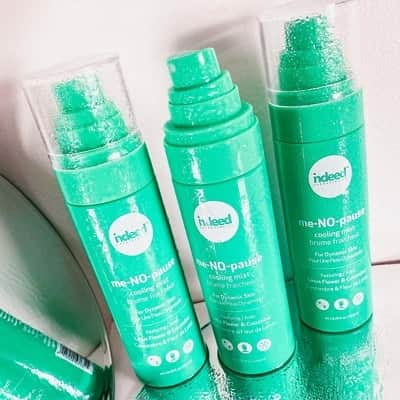

Hot flushes can be embarrassing and uncomfortable; but they needn’t be endured without succour.
Indeed Labs™ me-NO-pause cooling mist 75ml sprays on lightly to immediately cool (store it in the fridge for optimal results).
It contains cooling cucumber extract and calming magnesium, as well as the glycerin and hyaluronic acid, to top up moisture levels as it provides succour. Not sure about the name, but it’s delightfully calming in a tough moment.
